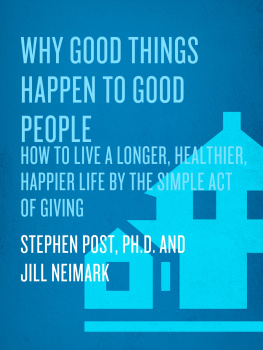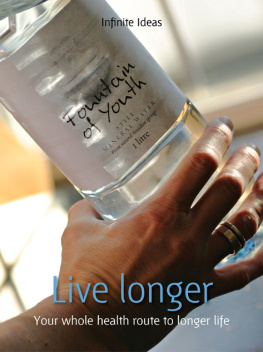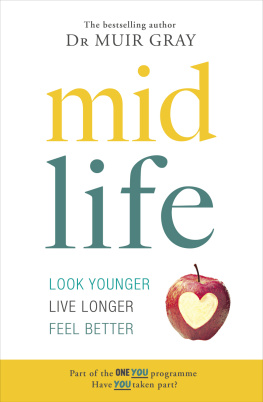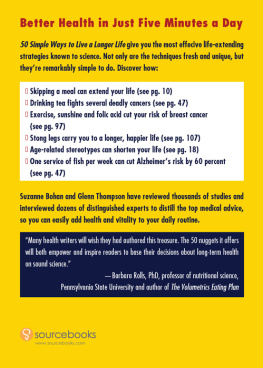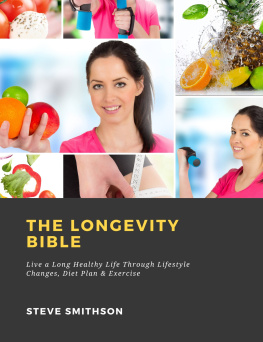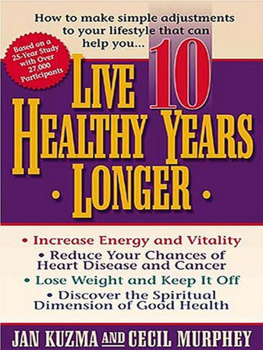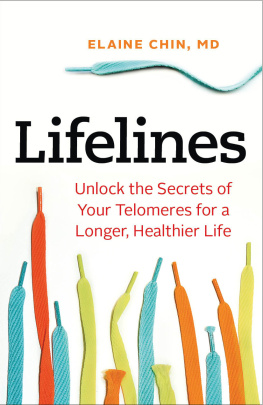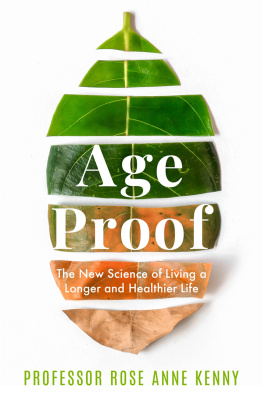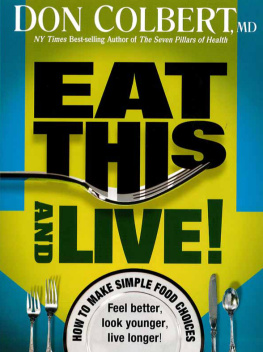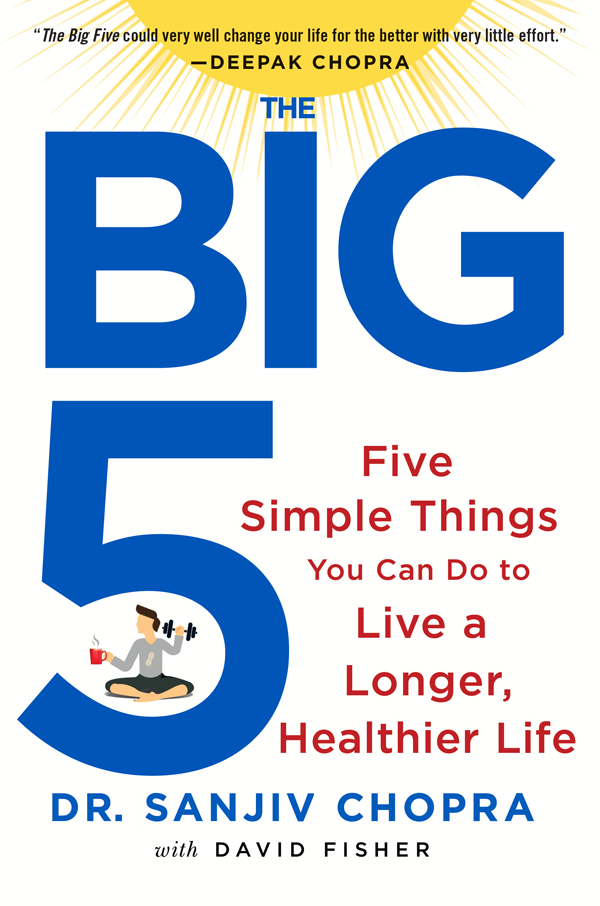Contents
Guide

The author and publisher have provided this e-book to you for your personal use only. You may not make this e-book publicly available in any way. Copyright infringement is against the law. If you believe the copy of this e-book you are reading infringes on the authors copyright, please notify the publisher at: us.macmillanusa.com/piracy.
I dedicate this book to my granddaughters, Aanya and Mira, who are the wellspring of happiness and joy in my life and inspire me to live in harmony and with abundance.
I have been a physician for more than four decades. For me, the profession of medicine has been more than a job or a career. It has been a calling. I love my work and find purpose and meaning in taking care of patients, starting by taking a detailed and thorough history and doing a skilled examination and formulating a diagnosis and treatment plan. It has been a privilege to be trusted to do so. I have also taught medicine not only throughout the United States but also in scores of countries abroad.
When I entered the profession, the art and practice of medicine was much simpler. In the last four decades, medicine has changed drastically and dramatically. We have witnessed the emergence of a modern pestilenceHIV/AIDSfrom the first cases reported in 1981 to the toll of 39 million deaths worldwide by 2013. The diagnosis of AIDS back in the seventies was a death sentence. Now patients take one pill once a day and can live a full and healthy life. An example of this is the basketball legend Magic Johnson. He announced he had tested positive for HIV in 1991, and about a quarter century later he is still thriving.
Medicine has witnessed many triumphs, including the development of effective vaccines. The hepatitis B virus afflicts 400 million people worldwide. It can lead to cirrhosis, liver failure, and primary cancer of the liver, which is the third leading cause of cancer mortality worldwide. The hepatitis B vaccine is in a sense the first anticancer vaccine. Two decades of universal childhood vaccination in Taiwan led to a 75 percent reduction in childhood primary liver cancer mortality.
As we triumph, we also face new tragedies. Ebola is not a new disease, but the recent outbreak in West Africa has instilled deep fear in millions of people worldwide. Vaccine trials are in progress, and I am confident that in the near future a very safe and effective vaccine will be available for large-scale use.
Our understanding of many cancers, coronary heart disease, obesity, diabetes, Alzheimers dementia, and other chronic disorders continues to advance at a remarkable pace. Some of the landmark discoveries and treatments have emerged from concerted and brilliant scientific investigations. Other major discoveries have occurred through the magic of serendipity. The word serendipity is derived from a story about the three princes of Serendip, who were always making discoveries, by accidents and sagacity, of things which they were not in quest of. Examples include the discovery of penicillin and the bacteria H. pylori.
The best scientific studies are randomized, double-blind, placebo-controlled trials. The results can be trusted, and often these studies are published in the most prestigious medical journals. However, great insights can also be gleaned from large-scale, well-conducted, epidemiological studies. Epidemiology is the science that studies the patternsincidents, distributionand causes of health and disease in defined populations. Well-conducted studies identify risk factors forsometimes even clues to the cause ofa major disease. They can lead to policy decisions, which, when enforced, can positively impact the health of large segments of the population.
One of the best-known epidemiological studies is the Framingham Heart Study, which began in 1948. Five thousand two hundred and nine adult subjects between the ages of thirty and sixty-two were recruited from Framingham, Massachusetts; the study now includes a third generation of participants. This longitudinal study has shed important light on heart disease, including the effect of smoking cigarettes, diet, exercise, obesity, and commonly used medicines, such as aspirin, on health and disease. Over a thousand scientific medical papers have been published from the knowledge obtained from this groundbreaking study.
Medicine continues to fascinate and dazzle me, from the promise of high-tech, glitzy innovations like stem cells and regenerative medicine to behaviors or habits that could be adopted by millions, even billions, of individuals for dramatic and long-lasting benefit.
In this book, I explore and explain the evidence regarding the incredible health benefits of coffee, vitamin D, exercise, meditation, and nuts. The evidence is conclusive. There is no doubt in my mind that drinking coffee, maintaining high but normal levels of vitamin D, exercising regularly, taking a few minutes each day to meditate, and eating a handful of nuts is very good for you. Of course, one or more of these things on occasion can be problematic. Some people have serious nut allergies; for others, drinking more than three or four cups of coffee a day can lead to insomnia and tremors. But for the overwhelming majority of people, ensuring that these five common behaviors are part of ones daily routine can go a really long way toward promoting and maintaining good health and perhaps extending life.
The impact of these five modalities on healthcoffee, vitamin D, exercise, meditation, and nutshas been studied for decades. As I show in this book, numerous well-crafted studies involving many thousands of people have shown how we can accrue great benefits from these five simple lifestyles changes. There are no theories involved; this is real-world data showing what happens when you take certain actions. There is also no attempt to explain or even understand why this is trueit just is. The conclusions are only as good as the quality of the data and the researchers, so I have not included small studies or studies sponsored by the purveyors of coffee and nuts or those selling vitamin D. This has allowed me to say quite categorically that people who drink coffee, exercise, maintain sufficient vitamin D levels, meditate regularly, and eat nuts show proven benefits over people who dont. I often advise patients and friends to heed the following advice. On a nice sunny day, take a short, brisk walk to your favorite java shop. Enjoy the coffee, and if youre going to have a bite to eat, you might as well partake of a handful of nuts. You have now exercised, manufactured some vitamin D from the sun, and had coffee and nuts. It is that simple!
I want to mention that these are not the only behaviors that are good for you. There is also substantial, emerging evidence that a Mediterranean diet can also be very good for you. In a recent, large study published in the British Medical Journal , greater adherence to a Mediterranean diet was associated with longer telomeres. This study is fascinating, and it is very likely that in the not-too-distant future we will see many more scientific studies addressing telomeres and longevity.
There are also some interesting observational studies that conclude that expressing gratitude on a regular basis can lead to individuals feeling happy and perhaps living longer.
Obviously, you need to be wise about incorporating these five things into your lifestyle. Get advice from experts: before beginning a regular exercise program speak with a trainer and find out what works best for you and what your limitations are. Listen to your body after drinking that additional cup of coffee and see how it affects the rhythms of your day and night. See a doctor to determine if you are deficient in vitamin D and therefore should be taking a supplement. Make sure you have no nut allergies before dipping into a tray of nuts.


